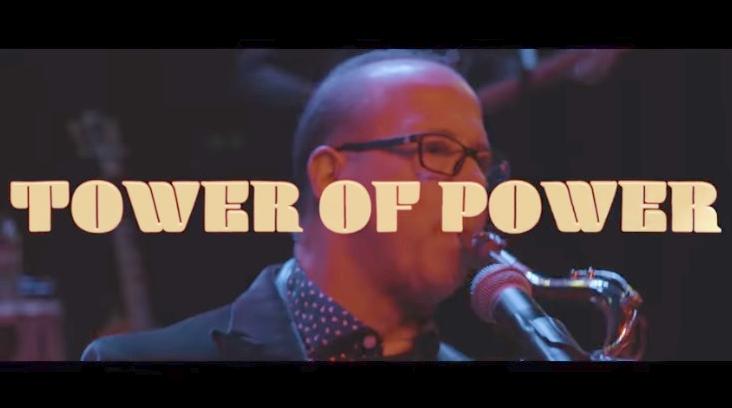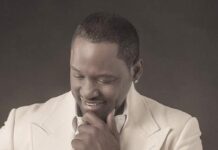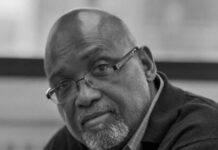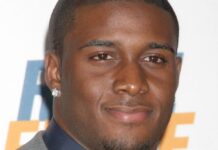*With their punchy 5-man horn-spiked instrumental sound, lyrics of timeless hipness, galvanizing history of dynamic lead singers and unparalleled Soul with a capital “S,” Oakland-based super band Tower of Power has been knocking audiences out around the globe since 1968 with stone-cold classics such as “So Very Hard To Go,” “You’re Still a Young Man,” “Down to the Nightclub,” “You Ought To Be Havin’ Fun,” “Some Days Were Meant For Rain,” “Diggin’ On James Brown,” This Time It’s Real,” “Only So Much Oil in the Ground” and, most notorious of all, “What is Hip.”
Their greatest trick perhaps has been to be one of the longest-running and highly influential bands – inspiring musicians from the UK’s Incognito to the U.S.’ Snarky Puppy – though the majority of the band is not African American. And yet, Tower of Power represents authentic Soul music of its own creation that is the real thing through and through.
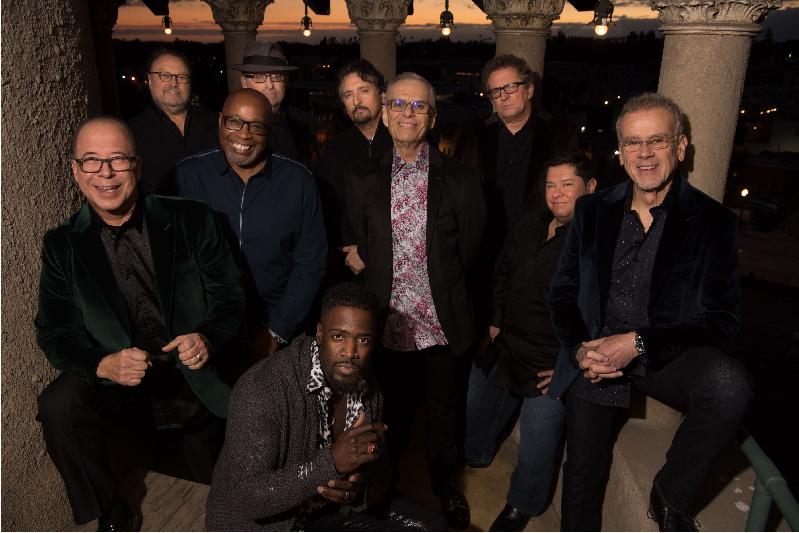
On its previous album, 2018’s Soul Side of Town, Tower of Power proudly celebrated its 50th anniversary and putting the finishing touches on a commemorative DVD documentary that will definitively tell the true story from the inside out. In the meantime, though they have been sidelined from the road due to the COVID-19 pandemic (as all creatives have been), they still have a brand-new album that they are virtually promoting entitled Step Up (Mack Avenue Records).
Kicking it off is the slammin’, sexy and sophisticated Soul of its lead single/video, “Look in My Eyes.” Also, in defiance of the COVID-quarantine, six past and present lead singers of Tower of Power united to record a Zoom-style video singing “What is Hip” in a powerful new arrangement that was a musical and historical TKO. And as if all that weren’t enough, Tower of Power are band ambassadors of the France-based Make Music Festival in which people from around the world – professional and amateur – are invited to pick up an instrument and revel in the joy and camaraderie of creating and enjoying music. What better band for such a celebration than Tower of Power which has participated in making music in styles and genres across the board.
In the series of in-depth interviews that follow and in the spirit of Black Music Month, L.A.-based Music Journalist A. Scott Galloway goes deep with Tower of Power founder Emilio Castillo plus legendary members Stephen “Doc’ Kupka and David Garibaldi to break down secrets and rarely told stories about how they’ve each been shaped by the band’s connection to Black music, personal revelations, song origins and so much more. So, sit back, take your time and marinate in the compelling history of one of the last bands standing in Soul…with a capital “S!”
*****
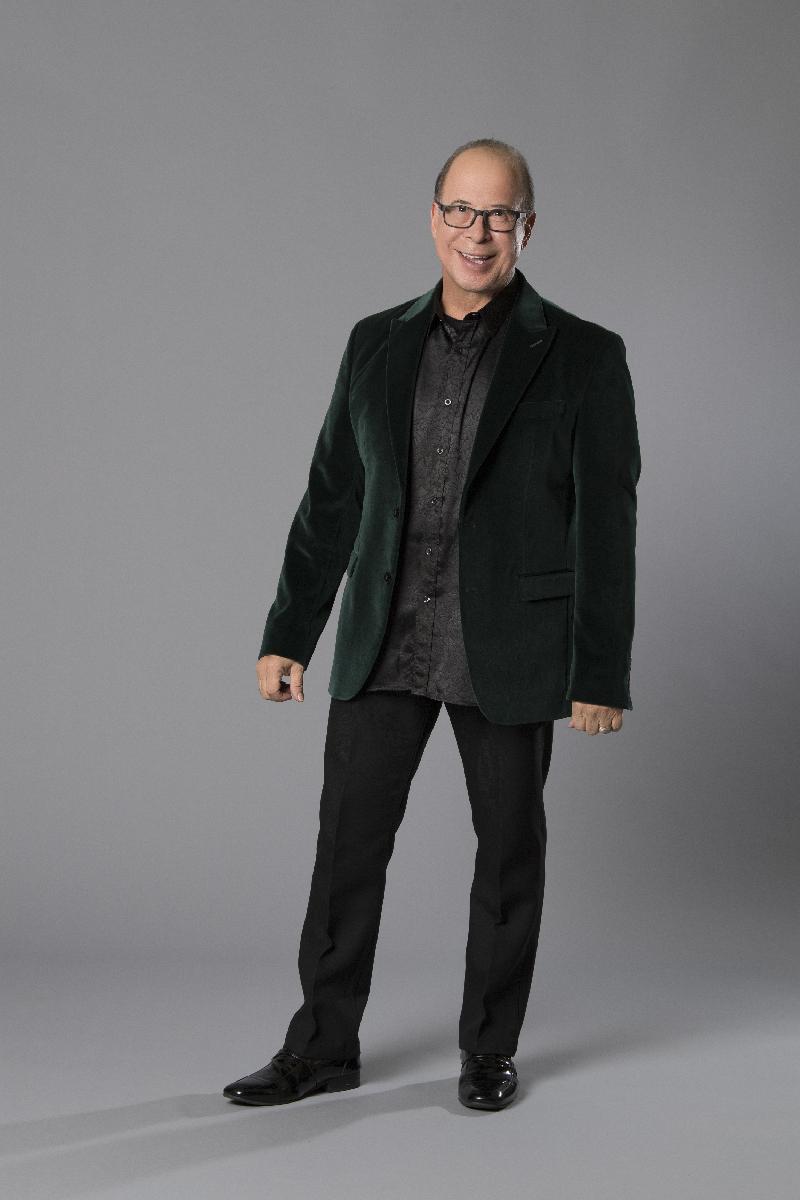
As the leader and heartbeat of Tower of Power, singer/saxophonist/songwriter Emilio Castillo has weathered many personal and professional storms to present authentic Soul music to generations of appreciative audiences. From co-writing nearly all of the band’s classic songs with partner Stephen “Doc” Kupka to monitoring the turnstile of musicians and especially singers that have come through T.O.P., he is a tireless soldier of Soul who stands proud to fan the flame of T.O.P.’s mighty legacy. In the interview below, he talks about leadership, purpose, longevity and the future.
A Scott Galloway: What qualities allowed you to step up and be leader of such a milestone band?
Emilio Castillo: God did it and I just showed up! I made every mistake you possibly could in the early years. Then God brought me to my knees, showed me The Way, I’ve been doing it His way ever since and things go well for us that way.
In the beginning, my brother and I started a band. We got in a little trouble and my dad said, “You better think of something to do this summer or you’re not coming out of that room!” We said, ‘We want to play music.’ We actually started a band that day and I’ve had a band ever since. I started the band first…then learned how to play! I was 15 and one of the first musicians I got was ‘Rocco’ (Francis Prestia) on bass. At 16, I really got turned onto Soul music which became my passion. At 17, I hired “Doc” (Stephen Kupka). We changed our name from The Motowns to Tower of Power, aimed our sights on the Fillmore West. By God’s grace, Bill Graham (legendary creator of The Fillmore) liked us and so did Dave Rubinson (famed Bay Area record producer). They signed us to our first record deal (San Francisco Records, a subsidiary of Atlantic Records).
Scott: What is the secret to Tower of Power’s longevity?
Emilio: We’ve had a lot of great players, singers, managers, crew people – a ton of alumni. I have great relationships with all of them. Besides the God thing, we as a band made a commitment about 15 years in that when we stay true to ourselves, we do better and the fans like it more. We had been trying to listen to the record company and to sound like what was on the radio. But no matter what we did, we sounded like Tower of Power. For a while, we felt cursed not being able to sound like other bands. Then everything dried up – no record deals, nothing happening. They called us dinosaurs. I told the guys, “Let’s just go back to doing it the way we do it: writing songs, trying them out on the audience then keep perfecting them.” We became passionate about making music our way. We realized it’s a blessing that we don’t sound like other people. We have our own voice. That is the great factor that every artist must have.
Scott: Tower of Power had its own sound since the very first LP, East Bay Grease.
Emilio: We can’t help ourselves! We had a singer in the early` 90s named Tom Bowes who said, “You could play the phone book and it would still sound like Tower of Power!”
Scott: A big part of the Tower of Power signature is the horn section which did many sessions for other artists. Then along came the Seawind Horns which, thanks to Quincy Jones, became the next popular sound for horns in the studio. How did you guys deal with that?
Emilio: I remember Seawind opening for us in Hawaii when they were still known as Ox! They were a very good band. Then I remember them opening for us in Winsor, Canada as Seawind. They had excellent horn players. They relocated to L.A., became very popular on the session scene and did awesome work. I have nothing but praise for them. The thing is, there’s a billion guitar players and drummers. But horn sections? There’s us, the Seawind Horns, James Brown, Chicago and Blood Sweat & Tears. But Seawind and Tower of Power pretty much became the go to sections for sessions along with the Memphis Horns.
Scott: I recall the Tower of Power horns and Seawind Horns playing together on one session for Harvey Mason on a song called “Freedom Either Way” (from Funk in a Mason Jar – Arista – 1977).
Emilio: I remember the session but not the album or the track. It was early in the morning and we had played the night before at the Whisky or The Roxy. Harvey came in and said, ‘You’ve gotta do this session!’ We were at the end of a tour and on our way home. But Harvey insisted. So, we wound up staying, those guys were there, we did it and it was cool. They were always very friendly. I remember their bari sax player, Kim Hutchcroft. Good guys.
Scott: You recently did a video remake of “What is Hip” using six current and former lead singers of the group. I have two questions. What inspired you and Doc to write a song contemplating the very definition of “hip?”
Emilio: That was Doc’s idea. He’s that kind of a quirky thinker. He said, “I want to write a song called ‘What is Hip.’” I said, “Well, what do you mean by that?” He said, “Everybody wants to be hip but as soon as you latch onto whatever the current trend is, it’s no longer hip!” We finished it up and there was a song out by Freddie King called “Goin’ Down” that had a 16th note bass line that was really cool. Our drummer David Garibaldi and bassist Doug Rausch of Santana were jamming on that groove. Dave said, “This might be cool for your ‘What is Hip’ song.” I said, “Absolutely!” Rocco nailed the bass line immediately and the song was born. It’s been very good to us.
Scott: What inspired the new Social Distancing video remake of “What is Hip?”
Emilio: That was actually the idea of one of former lead singers, Brent Carter, who sang for us in the mid-`90s and filled in over the years. He wound up getting the gig with the Average White Band who we play with a lot – good friends. Brent said he wanted to do a video of “What Is Hip” and for me to introduce it the way I do on stage: asking “The Eternal Question” – Social Distancing Style! So, I recorded that part then he got the singers together: Hubert Tubbs, Tom Bowes, Ellis Hall, Ray Greene, Larry Braggs and himself. They did a great job!
Scott: The two recent T.O.P. CDs were co-produced by you with Joe Vannelli who is known for making great sounding records. He won a Grammy with his brother Gino Vannelli for Powerful People. How did you connect with Joe?
Emilio: Our business manager is Diane Ricci who’s been with us 10 years. She’s married to Joe so we’ve known him a long time. I never knew how well respected he was. When we were recording our latest records, I had cut about 18 tracks in Sacramento then had a hard time getting back into that studio because it was so booked. Diane said, “Joe would love to have you come in and do a couple of tracks.” His studio is right below our office down in L.A. I said o.k., did two songs with him and was really impressed. He’s so meticulous and creative. He enjoyed it, too. So, as he was taking me to the airport, he asked if I’d like to do a few more songs with him. I explained that I was trying to do the best album of my career. I wanted to cut 25 tracks but at that time we were touring so much it was taking forever. “What do you think about helping me to finish it?” Joe goes, “That’s a big project. I’d love to.” So, I brought him aboard and that proved to be a really smart decision. Joe stepped up and showed his production skills, his musician skills and his technology skills. He just took it to another level. Between the two of us, I think we made two of the greatest records of Tower of Power’s career.
Scott: Those are very awesome records. My personal favorite though is your third self-titled album, Tower of Power (Warner Bros. – 1973). I read that the album was cut with another lead singer at first who was fired then Lenny Williams joined and had to recut all of the songs. Do the original masters still exist?
Emilio: We actually cut 5 or 6 of those songs with the original singer Rick Stevens, Willie Fulton on guitar and Skip Mesquite on tenor. I was having drug problems with a couple of those guys…so Willie and Skip went out but I let Rick stay. We cut the tracks over with Bruce Conte on guitar and Lenny Pickett on tenor. Then we brought in Chester Thompson on organ. Rick kept saying he wasn’t going to sing the tracks until everything was recorded. When I finally finished everything and was ready for Rick, he copped a real attitude So I told the guys we have to get another singer.
I’d already asked Lenny Williams to come into the band three different times. And he knew all of us. He didn’t want to come between us. But the last time I asked him, I said, “We’re getting another singer one way or the other. We’d like it to be you.” Lenny told me he rolled over in bed and told his wife, ‘I think he’s serious this time. I’m gonna do it!” So, we brought him in. I’d already recorded “So Very Hard to Go” and knew that song was perfect for Lenny’s voice because when I was writing it, I had already written some songs with him and knew the way he sang. His licks were already in my mind. So, I said, “Let’s have him sing this one song and put it out as a single.” I already knew it was gonna be a hit. Plus, that would buy us time for him to learn the other tracks and finish the album.
The original tracks still exist as outtakes in the Warner Bros. vaults. They were going to release them back before the big financial meltdown. Then Rhino/Warner Bros. started downsizing and I never heard about it again.
Scott: Lenny stayed for three albums and remains, to this day – after all these years – the band’s most recognizable lead singer. But, to my knowledge, you guys have never done anything together since. Was his parting that acrimonious?
Emilio: We’ve asked Lenny to come back and do different things with us… We actually did a gig in Hayward, CA where the promoter got him to sit in with us for about 6 songs in our set. He also sat in with us four years ago in San Mateo for 2 or 3 songs. I’m still on really friendly terms with Lenny and love talking to him. He has a great personality and a lot of love for me, too. But he’s never come back to record. That’s alright. He’s got a solo career and that’s his decision.
Scott: Who were your saxophone, songwriting and singing heroes?
Emilio: For saxophone, Arnett Cobb – a big tenor player out of Texas – Maceo Parker, King Curtis and Junior Walker. I like Soul. I’m not a big Jazz fan. For songwriting, I would say Burt Bacharach and Hal David, Jimmy Webb influenced me a lot, Leiber & Stoller, Gerry Goffin & Carole King, Doc Pomus – all those guys from The Brill Building. For record producers, #1 would be Thom Bell from Philadelphia, Steve Cropper out of Memphis, and of course all the Motown writers, James Brown, of course, Dyke & The Blazers, and one of my favorites of all-time: Curtis Mayfield. He just has a unique soul. His writing is great. He had an album with the Impressions called This Is My Country. Just like you said about Tower of Power’s third album, I can’t play just one song off of This Is My Country. I have to play the whole album. He had a great production sense, a great songwriting sense, and a sense for both lead and background vocals. I just love him and all that great Chicago Soul – Jerry Butler…Major Lance. For vocals I love Johnnie Taylor, Gladys Knight, Phillippe Wynne and Ronald Isley.
Scott: Do you think you will write a song about this crazy time America is struggling with right now?
Emilio: I just did, actually! You know the jam band Lettuce? They contacted me. Their drummer Adam Deitch (formerly of AWB). He contacted me about Doc and I writing some lyrics about the COVID-19 pandemic to a really funky up tempo track they had with just the hook: “Just keep holding on / Groove on.” He also wanted me to sing it. We finished the lyrics in one day. The next day, I went over to a friend’s studio to sing the backgrounds and the lead. They’re mixing it now and it came out really good.
Can’t fill the gap / That’s just where it’s at / Dealing with the plague / We don’t know / Just how it should go / Solution’s mighty vague / Feelin’ oppressed, completely distressed / Just can’t change the news / Can’t let it bring us down / Let’s change our point of view
Tower of Power has dates booked to do some gigs with Lettuce in the Fall, God-willing. But they were able to put their parts together in their home studios then send me the track. I wrote to the demo. The guitar player is mixing it.
Scott: In this time when a listener can’t seem to catch one instrumental break or solo on a song, Tower of Power gives us a new single titled “Look In My Eyes” that not only has a great arrangement and lead vocal, there are four tight instrumental solos plus female background vocal sweetening.
Emilio: The record company, the publicist, Joe Vannelli and Diane Ricci picked that to be the single. I was like, “O.K., go for it!” I’m proud of every song on the record. They could have chosen any one of them and I would have been good. That song was written by our former and legendary bass player Francis Rocco Prestia with Tom Schuman, the keyboard player of Spyro Gyra. Tom’s married to an Oakland girl…so you know he’s got Soul!
Scott: I understand Francis Rocco Prestia is no longer performing with Tower of Power. It was such a joy to see him over the last several years. What happened?
Emilio: I had to take him off of the road because he kept breaking down. He’d have to go to the hospital and we’d have to fly in somebody to sit in on bass. When we were in Europe and had to fly someone in from the Bay Area – that was expensive. We even had to do a few gigs without any bass at all. We couldn’t afford it anymore. To be honest, he hadn’t been bringing his100% best to the gigs for a while only because his health was not good. His playing was great. It was his stamina that was waning. A Tower of Power show can last anywhere from 90 minutes to 2 hours and 10 minutes. He’d run out of gas… It was difficult for him to accept at first but after being off the road for a couple of months, he called me and said, “I ain’t mad no more, man. You did what you had to do.”
Now we have Marc Van Wageningen – we call him “Marc V.W.” I’m in the process of mixing our 50th anniversary DVD documentary and Marc plays on 90% of it. He sounds incredible. So, God blessed me with another fabulous player.
Those Dutch people really have Soul.
Scott: Let’s close out with you sharing your thoughts about Stephen “Doc” Kupka, David Garibaldi, Rocco and your current lead singer, Marcus Scott.
Emilio: Marcus Scott is out of Memphis, Tennessee. He’s 35 years-old, got a good head on his shoulders, a great voice, is a great entertainer and very creative. Once again, God blessed us with another wonderful singer.
Rocco Prestia I’ve played with since I was 15. Back then his name was Frank Houghton. People called him “Butch” and “French Fry.” When we found out that his real name is Francis Rocco Prestia, Rick Stevens was still in the band and was the one that started calling him ‘Rocco.’ He’s one of my best friends in the entire world. I love him with all my heart. It’s been hard for me to see the physical aspect of his health deteriorate over the years but we jokingly tell each other all the time, ‘Rocco is going to be at all of our funerals. The guy’s got 9 lives!’ I understand that he’s recording a solo record now.
Doc has been my partner in crime since I was 17 years-old. He’s my best friend even today. We go on the road together, hang together backstage, call each other all the time. We’re brothers in sobriety, brothers in Christ and best friends for life – like-minded souls.
David Garibaldi is my brother in Soul and has been in the band four different times. The last time he was out for 18 years. He came back in `98. We had a prayer circle before we were going on. I led the prayer. When it was over, David walked up to me with tears in his eyes and said, “I always dreamed it could be this way.”
*****
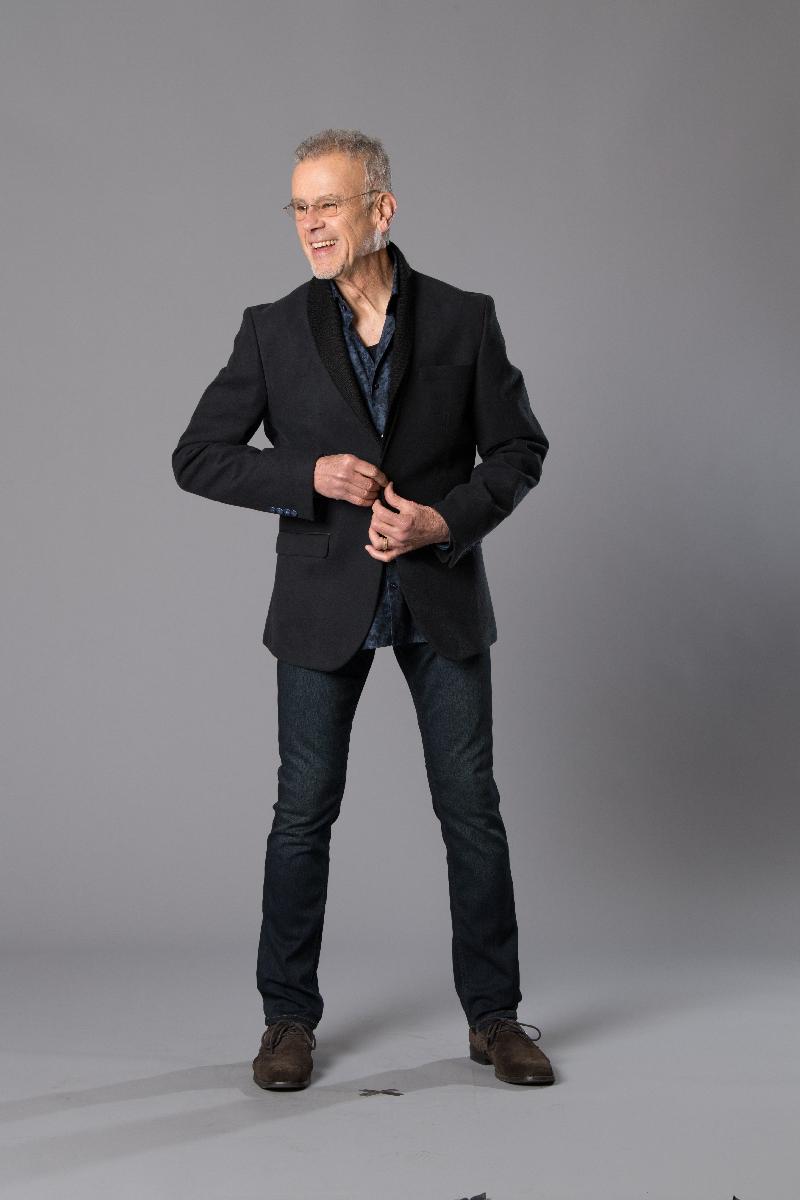
David Garibaldi is one of the most imitated and influential drummers in ‘70s Soul who inspired many across the board in music including Prince and Morris Day. The propelling, intricately syncopated parts he came up with for Tower of Power classics such as “What is Hip,” “Knock Yourself Out,” “Down to the Nightclub,” “Git Yo Feet Back On The Ground,” “Soul Vaccination,” “Oakland Stroke” and many more are the stuff that sends aspiring drummers deep into the woodshed. In the chat below, he discusses the broad range of styles that inform his playing, leaving and returning to the band four times, his relationship with former T.O.P. bassist Francis “Rocco” Prestia, and how he has been able to get his own feet back on the ground after being hit by a train in January 2017.
A Scott Galloway: Your drumming is so musical and your approach to creating parts so integral. You don’t just play “beats.” Did you study other instruments?
David Garibaldi: Coming up, my parents had me learn piano and theory. I studied mallet percussion (marimba, vibraphone and xylophone) in school. And when I was in the military, I continued with mallets and tympani. After the military, I decided to devote all of my energy to drum set, but all of that early training really helped me. I wanted to be in a Rock and Roll band. I loved the drum set. I had all of these influences: big band (Count Basie, Woody Herman), jazz (John Coltrane, Miles Davis), Then I heard James Brown and that changed everything! Then came Sly Stone – all the mix of music happening here in the Bay Area. I wanted to dive in and do all of that. Drum set became my focus. Then when Tower of Power came along, I had something into really sink into.
Scott: I’m imagining Latin music had an influence as well.
David: Yes. I remember Tower of Power had a trip to New York City to play the Fillmore East. Michael Shrieve, Santana’s drummer, took me to see Tito Puente at El Corso’s nightclub in New York City. It was absolutely stunning. That moved me to incorporate that into the way that I keep rhythm.
Scott: How did you construct your drum part for the classic “Soul Vaccination?”
David: “Mimi” (Emilio) brought this piece at our old rehearsal space in Berkeley that we shared with another band called The Loading Zone. “Soul Vaccination” started as a kind of jam. I was experimenting with Latin music, rudiments and learning all these different things. It was the first song we put together that didn’t have a traditional 2 and 4 approach to the drums. We were walking out of rehearsals with our minds blown because it sounded so cool and different…and it was working. It became the way that we approached all songs. All normal stuff was officially off the table. Everything was open. Rhythmically, I was working with the rudiment called “The Swiss Triplet” so my drum part was based on that mixed with Funk and Latin accents.
Scott: What was going on in the Bay Area with cats like you and Mike Clark (Headhunters) that was triggering all of this insane Funk-Jazz drumming?
David: I was 23 when I joined “Tower.” That’s when I met Mike who was just a couple years older. He and (bassist) Paul Jackson were already playing together. They were The Duo. Incidentally, recently me, Mike Clark (Herbie Hancock), Lenny White (Azteca/Return to Forever), Michael Shrieve (Santana) and Greg Errico (original Sly & The Family Stone drummer) have been doing these Zoom meetings. All those guys were there in the beginning of the development of Bay Area music. It was an amazing time. Bill Graham (concert promoter/music impresario) had a lot to do with that. He had The Fillmore and other venues. He was Tower of Power’s first manager. He was putting us on all of these great shows. Bill was educating the public on all this diverse music. He would book the Fillmore with four bands on one show but they would all be radically different. The Don Ellis Orchestra (Jazz) with Ten Years After (English Blues Rock) and The Buddy Miles Express (Soul) – a wide range of music. That’s just what it was like growing up around here. The psychedelic stuff in San Francisco, all this funk from east Oakland plus the Latin music, world music and classical music. We were exposed to all of this stuff all the time. So, all of the players were already mixing. It was all a “fusion” – we just weren’t calling it that at the time. It was a mix of things that we all wanted to incorporate into our playing, So, that’s how all of these “multi-headed players” evolved. A lot of unique players in a lot of unique bands.
You know, social ills such as racism weren’t happening in the music thing. Everybody was living together, eating together, making music together. It didn’t matter what color you were. The music was bringing us all together. My relationships from that period of time still exist today because of our shared experience and because of that time.
Scott: You’ve left and rejoined Tower of Power four times. What made you step out so many times yet always return?
David: First of all, Tower of Power is home for me. It was love at first sight. The groove, the vibe, the guys. When I saw them, that was what I wanted to do for the rest of my life. So, there was never a question about that. They are family. So, when stuff goes south with family members, it really hurts. When we started to get into drugs and alcohol, that started to tear everybody apart. I could clearly see that was the thing that was going to destroy us. It was already creating a lot of division within us, the music and our ability to create. I did not like it. It was in the way of everything. I dabbled in it as well. I remember one time I was doing something stupid and all of a sudden, I thought about my dad. My dad always loved me and was really supportive. I thought, “What if my dad saw me like this?” It was a very sobering awakening. I felt ashamed…and I never did that stuff again. I completely went as far away as I possibly could in the opposite direction – which meant leaving the band.
Coming back four times was like, when you have a relationship with a woman and it doesn’t work, you leave but come back because you want it to work. So, every time I came back to Tower of Power, there’d still be dope and weirdness going on. And I didn’t like it. So, I finally left one time that I thought would be forever. I was out for 18 years. Then I moved back to the Bay Area and I met the guy that was playing guitar for Tower of Power. He invited me to come hang out and wanted me to work on a solo project that Doc was doing. I saw that there was no more dope and everybody was really friendly. It was like it was in the beginning.
Eventually, they went to Europe on a tour and called me to say that drummer Herman Matthews was getting ready to leave. “Would you like to come back to the band?” They’d never asked me before…so I thought I’d give it a try. ‘Mimi’ (Emilio) and I talked. We decided I would do just one tour to see if we stull liked each other. It just so happened that trip to Japan got moved to later in the year. So, I just started doing gigs with the band. Blue collar stuff – The Million Gig March!” I got way back into it…and never left.
Scott: I was so thrilled when you came back because I was too young to catch you in the early `70s heyday. Thank God for YouTube. Describe for me your friendship and musical brotherhood with bassist Francis Rocco Prestia because you two were a special drum and bass lock.
David: Rocco is a beautiful man with a beautiful heart and just a really cool guy. When I first heard Tower, he was one of the aspects of their vibe that really stood out. Beyond the musicianship, hip arrangements and obscure covers they were doing, Rocco’s sound was a really big part of their unique sound in the bottom. When we first started playing together, it was instant chemistry. We never really spoke about what we do together. We just listened to each other and played. He’s got radar like nobody’s business.
There’s a story I like to tell. When I first joined the band, I made a lot of cassette recordings. I noticed that when I would play on my cymbals, he would play a light legato sound…but if I played on my hi hat, he would tighten it up so it was really percussive. I told him about what I was hearing and asked, “Why do you do that?” He said, “Well, I just think it’s what I should do.” That was pretty intuitive to him. Guys go to music school to learn that type of stuff and Rocco is like the ultimate garage player who’s already got all that going on. It would surprise you how little he knows about music for how intelligently he plays. He’s very sensitive and quite a player. We really miss him… We just had to move on.
Scott: I met you at The Canyon Club last year and remember you telling me that as good as you were sounding, you still had a long way to go as far as recuperating from getting hit by that train in front of Yoshi’s. How are you doing now?
David; Well, it’s still a work in progress. You get your bell rung like that and things change in your body. So, you really have to stay on top of stuff. I’m still dealing…but, hey – this is my life. I’m gonna push and make it as great as I can.
Scott: On a higher level, how do you deal with something like that accident happening to you – psychologically and existentially?
David: Well…from a weird perspective…I was knocked out for a few minutes. When I woke up, I remember saying, “Oh, no,” realizing what had happened…and I knew that it was really messed up. I couldn’t walk, feed myself or put my clothes on. My wife had to help me do everything. My movement level was I could make it from the bed to the TV room across the hallway. That lasted for about a month. I remember one morning waking up and being able to put my pants on by myself. From that moment, I realized I was gonna get better. My optimism kicked in. And I was praying to God all of the time that I was going to be healed, be back to work, back with my friends and back to doing the thing that I love doin’. I just kept that picture in my mind. No matter what the circumstances looked like, I filled my mind with Faith and the thing that I wanted to happen.
It was January then. My doctor told me, “Luckily, you had no neurological damage, Dave. You’ll be back to work in October.” Sure enough, I was. I wasn’t perfect…but I was back playing this music again. And I keep working to make it better every single day.
*****
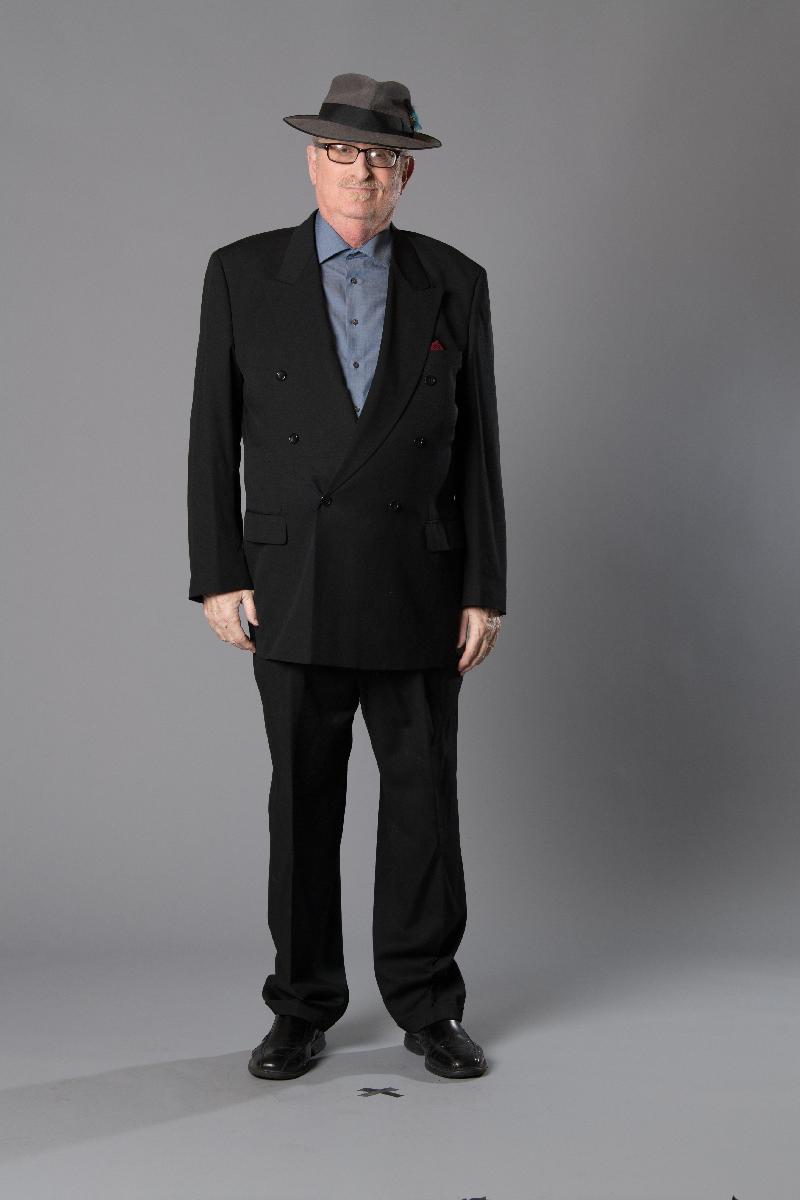
Stephen “The Funky Doctor” Kupka (pronounced “coop-kuh”) is the eldest member of Tower of Power, is a wise sage and, in some respects, it’s most identifiable member with his Alfred Hitchcockian visage, suspenders, shades, lid and funky-funky attitude. As primary lyricist and baritone sax man, ‘Doc’ has been at the very foundation of the band musically (at the bottom end of the horns’ tonal register) and philosophically (kickin’ low end theory that led to he and leader Emilio Castillo’s creative entrepreneurship as songwriters). In the interview below, he talks about his classical music roots, his passion for writing, and the band’s overall contributions and takeaways to the sweet-sweet artform of Black music.
A Scott Galloway: Tower of Power holds a really special place in Black music in that 90% of the founding members are not Black. Yet, much like Scotland’s Average White Band, you have represented the music to the fullest. What made you fall in love with Black music?
Stephen “Doc” Kupka: It was the music that lit me up, When I started playing, I was an oboe player in college. My father, Dr. Edward Kupka, was a medical doctor but a fan of classical music to the max. He had a huge record collection and listened to the Texaco Afternoon Opera Hour every Saturday. Me playing the oboe was him living through me. That was the instrument he decided I should play so I went for it. At that time, I enjoyed playing in Broadway shows like “The King & I” and “Oklahoma.” I did well with oboe, playing with the University of California Symphony Orchestra. But in the mid-`60s, Sam & Dave’s “Hold On, I’m Comin’” came out…James Brown and Otis Redding. Even before that, I loved songs like “Turn On Your Love Light,”: “Searching,” “Get a Job” and “Shopping for Clothes” by The Coasters. So, I wanted to play Rhythm & Blues. Being a rebellious teenager, since I was force fed classical music, I didn’t appreciate it like I should have. I wish that I would have embraced it earlier. I would have been a better songwriter today if I had. But I got there eventually.
Coming from oboe, it was natural to switch to sax. At the time, there was a lot of good tenor players but nobody played baritone. I figured with that instrument I might catch some opportunities. When I dropped out of college, I was working as a roadie for a band called The Loading Zone and was on the scene. That’s when I met Emilio on a 4th of July weekend in `68. I heard the band (then The Motowns) and told him they were pretty good but could use some bottom in the horns. “By the way, I play ‘bari.’”
Scott: Paint a picture for us of your audition for the band!
Doc: While I was very studied in oboe, for bari I just listened to the songs of the day and figured out what the bari part was – to the best of my ability – playing along to the radio. So, when I got to the rehearsal, there were four songs that they did that I knew: “Cold Sweat” by James Brown, “Tell Mama” by Etta James, “Philly Dog” by the Bar-Kays and “B-A-B-Y” by Carla Thomas. They had three horns already – Emilio on alto (he’d later switch to tenor), Skip Mesquite on tenor and a guy named Gary we called “Raw Soul” on trumpet (who went away to college and was replaced by Mic Gillette). I just started playing with them and the whole band. I felt I had the parts down pretty close.
Emilio tells the story that while we were playing, his father peeked in, asked him to come outside for a minute and told him, “Hire this guy. He’s got somethin’.” Every time I saw him for 40+ years, I would thank Emilio/s dad for my career.
Scott: Did Emilio’s father ever share what he heard in you that made him say that?
Doc: No. They had already tried out some trombone players from the marching band that didn’t work out – no Soul in the music. They weren’t even going to try out anyone else but I talked my way into an audition. Emilio’s father was a bartender in nightclubs that had showbands so he was an afficionado. He would take Emilio to shows occasionally and they also had all the great records. He heard me in their playing “bari scoops” which really make a horn section sound better. He recognized that so they hired me. That was one of the few times Emilio’s dad got involved with personnel. At that time the band manager was Roland Barnett who was also The Loading Zone’s manager. To this day, he was the best manager we ever had.
Scott: Did your father being a doctor have any bearing on you later getting the nickname “The Funky Doctor?”
Doc: Our singer Rick Stevens gave me that nickname around the time of the Bump City album. I think that my father being a rather successful doctor in treating TB (tuberculosis) did have a little bit to do with me getting that name.
Scott: Did your father appreciate the direction in popular music?
Doc: No. He didn’t speak to me for a year for playing “jungle music.” He wasn’t a total racist…but he came from Detroit. R&B to him was like rap is to some parents now. But when I got successful, he came to a show, Emilio dedicated “You’re Still a Young Man” to him and that made it good. I got a lot of mileage out of that! The best compliment he gave me was, “Even Beethoven had filler music.” On the other hand, it got back to me that he would say a lot of nice stuff about me to other people. He would tell his friends how well I was doing and how proud he was.
He was European in his outlook. He was Czechoslovakian on his father’s side and my mother was English and Scottish. My dad had tuberculosis as a young man and had to be in a sanitorium for a long time. Then he came out to California and met my mother who was born in Hollywood. That’s where I was born, too, in 1946 but we lived in Los Angeles. When I was young, we lived next door to Les Paul (the famed guitarist/inventor) and his first wife on Curson Avenue off Sunset. I’m very proud of that! It’s a parking lot now…
Scott: You were the one who casually mentioned to Emilio that instead of doing all those hip arrangements of other people’s tunes that you should write your own songs – though neither of you had ever done that before. After one month’s work. you came up with your first song: “You’re Still a Young Man,” one of the most classic ballads of `70s Soul. Where did you get the inclination that the things you wrote lyrically had to be exceptional?
Doc: I always had a way with words. I was fast on my feet with clever things to say. Emilio was doing a great job of making distinctive versions of other artists’ songs. It didn’t make sense to me for us to have a distinctive arrangement of a Temptations song than a song we put together. That way we could own a song, make money off the song. Besides, who wants to be a cover band for your whole career anyway? Back then, most of the chords and music came from him and I was more the lyrics. But over the years he’s written plenty of lyrics, too. Emilio was also better at teaching songs to the guys. When it came to the horns, we would do a head chart. But with “You’re Still a Young Man,” when Greg Adams came into the band a year or so later, he touched up the arrangement. And from that point, he immediately became Tower of Power’s horn arranger. He had been doing charts for high school stage band – quite advanced for a kid his age.
I love being a songwriter. These days – actually for a long time – when I’m at home, I spend my time doing songwriting stuff rather than practicing the sax. Now thanks to being off the road all this time due to the virus…I’ve gotta practice!
Scott: Please share some details about the lyrical development of “What is Hip.”
Doc: I had been thinking: what is hip? In 1968 it’s one thing, in 1972 it’s another. It keeps changing. We did a show with (colorful white Soul band leader) Wayne Cochran. I said something to him that sounded hip and he said, “Naw, you don’t want to sound hip. What’s hip today might become passé.” That line was the glue that put that song together. I also really like the line “You done even went and found you a guru / In an effort to find you a new you.” At the time the Yoga Nandi was really big, Transcendental Meditation, the Beatles and all that. And the line “Smokin’ only the best weed” was very, very controversial back then. When we performed it on TV, they blotted it out as if we had said the F word or somethin’! Those lyrics have hung in there waaaay longer than anything that was ‘hip’ back in `73. It was our drummer David Garibaldi who suggested we do a bass part like Freddie King had on his song “Goin’ Down.” That really made it happen. I knew it was going to be one of our most important songs. Virtually all of the lyrics are mine and I’m really proud of it.
Scott: It is a great song musically and lyrically timeless as a question – just like Marvin Gaye’s “What’s Going On.”
Doc: Somebody once told me that they equated the bridge “Hipness is what it is / And sometimes hipness is what it ain’t” to Shakespeare’s Hamlet saying “To be or not to be.” I got a kick out of that.
Scott: What were the most satisfying moments of collaboration for you outside of Tower of Power?
Doc: The gig we did with Aretha Franklin and King Curtis is my favorite gig we ever did…by a long shot. The week before, we did a Grammy thing in Los Angeles: Tower of Power and King Curtis & The Kingpins. We always played with each horn playing into his own microphone. At that gig, they just played into the air. We dusted `em off! The next week, they were all playing into a mic and they kicked our ass! I actually got a big kick out of that!
Scott: Ouch! “Revenge of The Kingpins!”
Doc: Yeah! But King Curtis is my favorite saxophonist of all-time. He and Lenny Pickett (a vintage Tower of Power alumnus). So, it was a real thrill playing with him. King Curtis (was murdered) not that long thereafter so it was a real honor to be there.
My second favorite artist to work with was Huey Lewis. Not because he’s an average singer who makes the most out of his voice and has a great personality. I love everything about him. I’m so sad that he can’t sing anymore because of his ears. All the stuff we did with Huey was really cool. We also did a session with Linda Ronstadt & Aaron Neville of “When Something is Wrong with My Baby” – one of my favorite Soul tunes from the old days.
Gigs we did with James Brown were great, too. You know, we have a song called “Diggin’ On James Brown?” We were unsure whether we should play it on those gigs – in case he responded like, “I’ll see you in court!” (laughs) But we decided to do it anyway. He came up to us after the show and said, “I really like that James Brown song!” That was the nicest compliment we ever got as far as I’m concerned. James Brown also said in an article back in `78 that there’s no Black band in the world that plays my stuff better than Tower of Power.” So, playing Black music and getting compliments from The Godfather of Soul was really meaningful.
Scott: Tower of Power has always been a racially integrated band with a melting pot of cultures running through it. You’re still standing 50+ years later. How does that all sit with you in your spirit about what you have been able to contribute to Black Music and what you’ve taken from Black music?
Doc: Once again, Black music was the music that lit me up, but I like the Great American Songbook, too. Back then, songwriters had a lot more craftsmanship. I like melodies. Take “Ooo Baby” (Smokey Robinson) – simple but beautiful. All that Thom Bell, Gamble & Huff stuff. I don’t know if it’s true but I heard somewhere that “If You Don’t Know Me By Now” by Harold Melvin & The Blue Notes was somehow inspired by “You’re Still a Young Man.” I’d like to think that it had something to do with it.
I’m grateful that I came from an integrated high school where they used to sing “Daddy’s Home” in the stairwell a cappella. That gave me a leg up on being ‘ebonically’ correct. I had a dear friend named Earvin Moore who let me hang out with him. He was the one who said, “Knock yourself out” and “On the serious side,” which both gave me concepts to create a song. I didn’t see Earvin for a while… Then, several years later, I was able to thank him for letting me hang with him. I think it meant a lot to him that I remembered him and thanked him for it. That relationship allowed me to feel I was authentically soulful in my own way.
Story by A. Scott Galloway
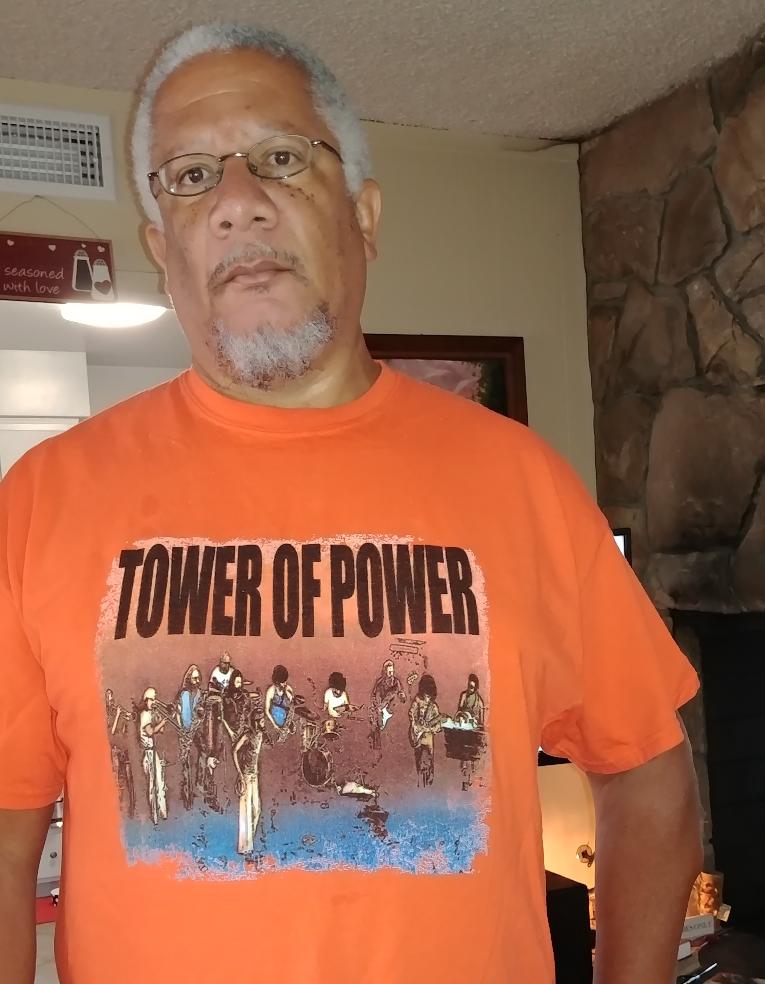
(A. Scott Galloway is a prolific Los Angeles-based Music Journalist who has been writing about the artform since1988 in many capacities, most prominently as a composer of over 300 liner note essays for classic album reissues and compilations including the Average White Band’s Soul Searching, The Very Best of the new Birth, Inc., Minnie Riperton’s Petals, The Dells’ Freedom Means, Curtis Mayfield’s Superfly, The Isley Brothers’ Complete RCA and T-Neck Records Recordings and David Sanborn: Anything You Want – The Warner Reprise Elektra Years. Contact him via: [email protected])
We Publish News 24/7. Don’t Miss A Story. Click HERE to SUBSCRIBE to Our Newsletter Now!
